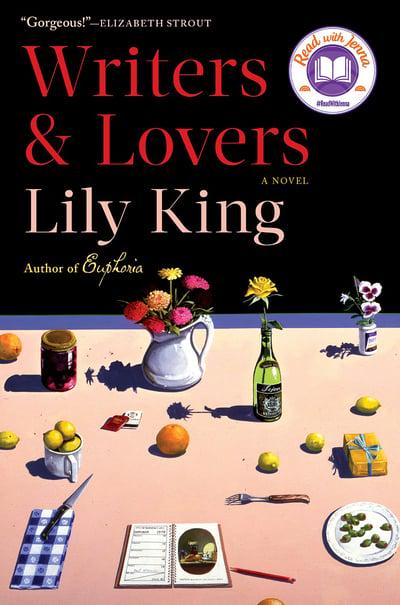Lily King
Grove Press

|
Nearly every guy I’ve dated believed they should already be famous, believed that greatness was their destiny and they were already behind schedule. An early moment of intimacy often involved a confession of this sort: a childhood vision, teacher’s prophesy, a genius IQ. At first, with my boyfriend in college, I believed it, too. Later, I thought I was just choosing delusional men. Now I understand it’s how boys are raised to think, how they are lured into adulthood. I’ve met ambitious women, driven women, but no woman has ever told me that greatness was her destiny. from Writers & Lovers |
The Agony and the Agony
Lily King’s new novel is about love and writing. Judging from this book, both should be avoided whenever possible.
Casey Kasem is a 31-year old aspiring writer. Her mother died recently, ending their complicated relationship; she’s also estranged from her father, hates her job as a waiter at a high-end restaurant in Boston, lives in a miserable renovated potting shed smelling of loam, and has $76,000 in student debt that’s growing faster than the federal deficit.
She has a mixed history with men: she drifted away from Paco after a couple of years, followed by more men, more drifting, then found Luke…but let’s not even think about Luke. One recalls the adage “Love is Blind.” It appears love is also not too bright. Unsurprising, Casey has a rather skewered view of marriage. “It was nothing I ever aspired to anyway. My parents were married twenty-three years and never made it look appealing.”
But then romance enters. Or a couple of romances: Her relationship with Famous Writer Oscar Kolton, a 47-year old widower with two young sons is comfortable, cozy, if not very exciting. There is also Silas, another aspiring writer closer to her own age and emotional maturity. She seesaws between Silas with his on-again, off-again intensity, and Oscar and his two boys. Some of the most emotionally affecting scenes are between Casey and Oscar’s young sons. She does seem to relate best to males under the age of eight.
The other theme of her life is writing. The Agony and the Ecstasy, title of Irving Stone’s famous novel about Michelangelo, has become an iconic description for the struggle, suffering and exhilaration of the creative process. Casey admits, “I don’t write because I think I have something to say. I write because if I don’t, everything feels even worse.” (Well, whatever inspires you.) She does experience a moment of giddiness when her book is picked up by an agent, but one senses that this is not the ecstasy Stone was referring to.
What seems lacking in this book is passion, which one would think is especially critical in the romance genre. The agony comes through. What’s missing is ecstasy, in either writing or love.
The story has a happy-ish ending, but given the preceding 300 pages, you just know that Casey is not going to be a candidate for the Happily-Ever-After sweepstakes.
This review first appeared in The Columbia River Reader (February 15, 2021.) Reprinted with permission.



